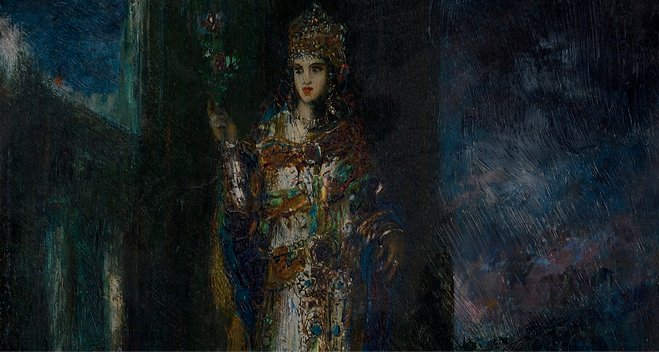The Lover of a Rose
- Naida | Orphic Inscendence

- May 13, 2020
- 3 min read
Updated: Jan 6

When I usually write here, the intent behind my writing is to seek meaning and substance behind the forms. It is an exploration of ideas and concepts with those who read these texts. These texts which reflect on texts of philosophers, theologians and writers, usually are quite long and extensive. Before writing today's essay, I was wondering, whether I want to address one of the many topics I have written on my list or to simply allow the mind to wander and communicate directly with whomever is reading. Today's post, will then be different than the usual posts and in today's I will allow a gentle stream of consciousness to come over. For it cannot be so bad to see a human behind the often impersonal and detached texts. On this day, that I write this, almost a half of the month of May stands behind me. The gentle sun comes through my open window, the scent of freshly cut grass joins it - there is no music to help me focus, for I do not believe music to be background noise and if we are to listen to it, I deeply believe, we ought to listen with attention and care. Good, deep piece of music is made for a human to connect with it and not to have it destroy the silence. I love the month of May - probably for the similar reason I love that season that stretches from late August to early October. Both are fertile seasons, full of vegetation and growth. The late summer to early autumn is the season of harvest - it is when Demeter allows her cornucopia to bless the humanity with its gifts. The month of May is similar. It is a month when the green around us is in full potency, when blossoms are not threatened by the dawn's frost. The ancient astrologers, Greek, Roman, Persian, Ottoman and perhaps many others saw this season to be the season of the bull - a potent, fertile and strong animal, often used for our human sacrifices to gods. The archetype of the sacred bull transcends regions and specific religions and repeats over and over again. The bull stands for agriculture, for growth, for fertility, for material prosperity and while we may reap the harvest in late summer or early autumn, it is in May that it begins. However, my favourite thing about May are its roses. It is a month when the first roses blossom and appear. Finally, not scared for their livelihood from the cold, they begin to open and spread their scents. I love to see them wrapped around concrete and metals and I love how vulnerable they look in their Beauty. Perhaps, that is the core quality of Beauty, the vulnerability - Beauty as such is so pure, so celestial and Divine that it never thinks of defending itself. Yet, the graceful and gentle rose, also has its thorns. The thorn protects the gentleness and grace of the rose and rose bestows grace upon the thorn. For this reason, the Sufi mystics saw the rose as the earthly manifestation of Unity of the opposites which itself is a testimony of Oneness. For thorn and the beautiful petals are parts of the same flower - it is where Divine Wrath unites with Divine Grace and Mercy. For a true Lover, then, it is said, there is no difference between the thorn and the rose. When I contemplate on the meanings of Love, I often cannot help but think that to love means to notice and that to love means to pay attention. A true lover, does not only see the obvious, the clear - the red color of the rose, or the joyful yellow, or the gentle white - what the lover sees is every spot on the flower, he sees how the petals and the thorns speak and finally, he sees the Unity, the completeness - all of the attributes of the Beloved unite into a single, radiant light. Everywhere we look, anywhere we allow our gaze to fall is an unique opportunity for this connection through nothing but pure love and devotion. It is an eros that seeks to destroy the boundaries between the two and it is also a bhakti (Sanskrit for "devotion, love, worship, purity), an emotional devotionalism that also seeks not the boundary to dissolve because the yearning and the desire, the need, the hunger for the Beloved, will also disappear. Standing between her desire for Unity and desire for selfless, self-sacrificing devotion, the lover is tormented and deeply enjoys her torments.





Here we have a hedonism properly understood! Dante saw Beatrice blend into his Empyreal Mystical Rose. All saints have their proper place in it, I suppose, but it's a remarkable admission here--that the 'thorns' of society are placed There, as well!